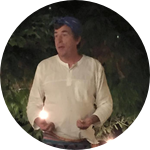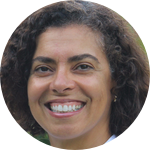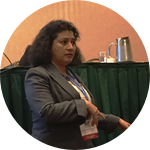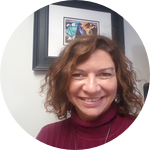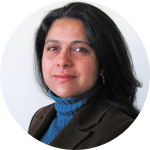About This Project
Prenatal care is important to promote a healthy outcome for pregnancy. However, Indigenous-Migrant Seasonal Farmworkers (MSFW) from Mexico, Honduras, and Guatemala face many barriers to prenatal care including long work hours, lack of transportation, work hazards, frequent re-location, and cultural, geographic and linguistic challenges. This project will identify addressable barriers to prenatal care and identify strategies to overcome them.
Ask the Scientists
Join The DiscussionWhat is the context of this research?
Unrecognized by many, a significant portion of MSFW in Skagit and Whatcom Valley, in Washington state, are indigenous to Mexico and Guatemala. Many do not speak Spanish as a first language and may not be familiar with Hispanic culture. These populations of Triquis and Mixtec usually do not visit a doctor during pregnancy; however, there is limited knowledge about the explanation other than assumed cultural differences.
What is the significance of this project?
An infant born to an indigenous mother in the state of Chiapas, Mexico is three times more likely to die compared to the rate for Mexico. The maternal mortality rate in neighboring Oaxaca is twice that national average. Therefore, this study is highly significant and unique, because so little is known about barriers of prenatal care in indigenous-MSFW’s populations from Southern Mexico and Guatemala in the United States. The intent is to identify addressable barrier to improve timely prenatal care for this unique populations, since women who receive prenatal care have lower rate of maternal and infant mortality, as well as better pregnancy outcome. Utilization of prenatal care is correlated with higher mean birth weight and gestational age.
What are the goals of the project?
This project will identify addressable barriers to prenatal care among indigenous- MSFW, barriers perceived by clinicians to providing prenatal care to this population, and strategies to overcome them.
Phase 1 Survey Development: A 15-20 item survey in the spoken language of participants. The survey will be tested and modified with feedback from a focus group of 6 volunteers.
Phase 2 Data Collection, 80 MSFWs and 20 clinicians will be surveyed. Recruitment will be done door-to-door, at camps and SeaMar clinic locations. A $20 Incentives will be provided to participants.
Phase 3 Finalize Data Collection, Clean-Up and Analysis, the surveys will be analyzed in Microsoft Excel and SPSS software.
Budget
We have the funds to collect the data and give stipends to participants and something to community health workers, but we do not have funds to analyze the data. The majority of this budget ($2,610 ) will be used to purchase statistical analysis software (SPSS Standard). In addition we are planning to give stipends to two students and four community health workers ($1000).
The additional funds will be used to disseminate the outcome of the research by publishing to professional journals and present results at local conferences.
Endorsed by
Meet the Team
Team Bio
Ileana Ponce-Gonzalez
Over the past 15 years I have been responsible for a wide range of professional activities, including academic, clinical and public health administration by managing and administrating public health programs in health service research, health disparities, health literacy, and human right advocacy in an effort to deliver quality health services, education, and behavioral training to populations that need these services the most. I have extensive experience working with diverse segments of the community as well as state and local government public health systems in three different countries: Nicaragua, Chile and the United States.
Colleen Pacheco
For the past 25 years, I have worked in project design, program management, and advocacy for non-profits on issues ranging from reproductive health and health care access to transportation and environmental sustainability at different scales – from the local to the international. For over 8 years, I have managed medical clinics and innovative programs and grants at Sea Mar Community Health Centers including two of our outreach programs utilizing community health workers. I have a Masters of International Management from the Thunderbird School of Global Management and a Masters of Public Health, from the University of Washington’s School of International Health (now the school of Global Health).
Marcela L. Suarez Diaz
A native of Colombia, I came to this country almost 6 years ago. I was fortunate to work for over a year as a CHW in several capacities for Sea Mar which included conducting motivational interviews with Latina women regarding mammogram screenings. Currently working as Sea Mar’s Promotores Coordinator, I have been able to recruit, lead and inspire our amazing team of farmworker CHW’s for the past four years. Prior to entering health care, I have worked over 16 years in marketing in mass consumables and pharmaceutical development, which includes research and consumer behavior utilizing a variety of tools such as focus groups, interviews, large discussions and survey analysis.
Additional Information
There is limited data focused on prenatal care in Mexican and Guatemalan indigenous, but babies of mothers who do not get prenatal care are three times more likely to have a low birth weight and five times more likely to die than those born to mothers who do get care. Additionally, the inability to establish good communication between clinicians and indigenous patients raises challenges when dealing with health care services and can result in misunderstandings. In addition to considerations of cultural and linguistic barriers, the perception and understanding of clinicians about the principal barrier faced for the participants in this study are essential to develop effective outreach to indigenous populations during the first trimester of pregnancy.
Project Backers
- 14Backers
- 25%Funded
- $1,019Total Donations
- $72.79Average Donation
